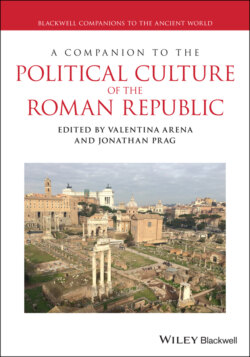Читать книгу A Companion to the Political Culture of the Roman Republic - Группа авторов - Страница 53
4.9 Conclusion
ОглавлениеThis chapter has explored republican-minded uses of Roman examples and references during eighteenth-century France. Its main purpose has been to show that while being most certainly a rallying cry, Roman republican virtue is first and foremost brandished as the means to achieve freedom, understood as non-submission to arbitrary power and conceived of as the prime political, or even the highest human, good. This result is hardly surprising when seen in the light of the wider understanding of the early-modern republican tradition, yet it sharply differs from the commonly accepted view that references to ancient Rome were, basically, either a nostalgic way to groan with the loss of a political Eden, or a utopian way to contemplate recasting degenerated modern mankind in an ancient republican mould. To dismiss this objection, it has been necessary to enter into close readings of some crucial texts, forsaking the kind of overarching survey whose highly abstract nature makes it too remote from the real intellectual preoccupations of a given author in a given text. The approach adopted here, like every approach, has its drawbacks: it does not provide the overview we think is needed, in order to delve more into particulars. Nevertheless, some examples discussed here – such as the use of Roman republican thought to expose a fiercely individualist account of the function of government – which may appear surprising as far as the dominant scholarly trend is concerned and which have emerged from the alternative approach adopted here, clearly demonstrate that the overview, with its neat distinctions and elegant characterisations, should never be taken for granted when entering into particulars, and should always yield to what these detailed accounts provide.
